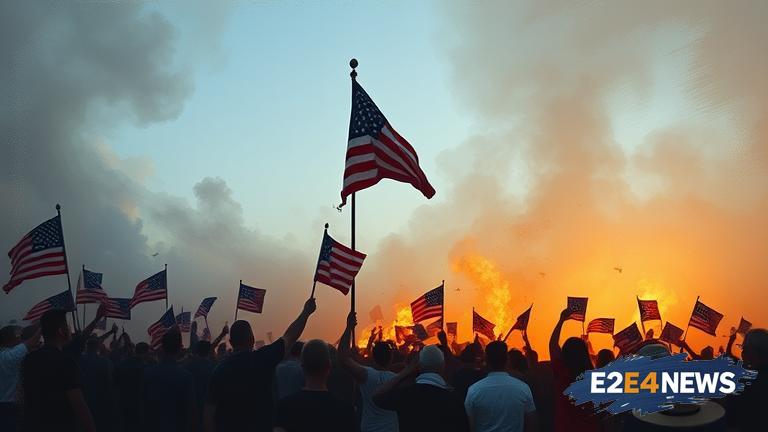The topic of flag burning has been a contentious issue in the United States for decades, with some arguing it is a form of disrespect to the country and its symbols, while others see it as a legitimate form of protest and expression. The New York Times has reported on the issue, highlighting the fact that despite tough talk from President Trump, flag burning remains a protected form of speech. The Supreme Court has consistently ruled that flag burning is a form of expression protected by the First Amendment, which guarantees the right to free speech. In the landmark case of Texas v. Johnson, the court ruled that burning the flag was a form of symbolic speech, and that the government could not prohibit it. This ruling has been upheld in subsequent cases, including United States v. Eichman. The First Amendment protects a wide range of speech, including speech that may be considered offensive or unpopular. The amendment is designed to ensure that the government does not have the power to suppress dissenting voices or limit the exchange of ideas. Flag burning is often used as a form of protest, with individuals seeking to draw attention to issues such as government policies, social injustices, or other forms of dissent. While some may view flag burning as a form of disrespect, others see it as a powerful symbol of resistance and a means of expressing deeply held convictions. The act of burning the flag is often seen as a way to challenge the status quo and to bring attention to important issues. The use of flag burning as a form of protest is not unique to the United States, with similar forms of protest being used in other countries around the world. In recent years, there have been several high-profile incidents of flag burning, including during protests against police brutality and racial injustice. These incidents have sparked heated debates about the role of flag burning in American society and the limits of free speech. Some have argued that flag burning is a form of hate speech, and that it should not be protected by the First Amendment. However, the Supreme Court has consistently rejected this argument, ruling that the First Amendment protects even speech that may be considered offensive or unpopular. The protection of flag burning as a form of speech is not limited to the United States, with other countries also recognizing the importance of free speech and the right to protest. The European Court of Human Rights, for example, has ruled that the right to free speech includes the right to engage in forms of protest that may be considered offensive or controversial. In the United States, the protection of flag burning has been the subject of ongoing debate and controversy. Some lawmakers have introduced legislation aimed at prohibiting flag burning, but these efforts have been consistently rejected by the courts. The American Civil Liberties Union (ACLU) has been a strong advocate for the protection of flag burning as a form of speech, arguing that it is an important means of expressing dissent and challenging the status quo. The ACLU has also argued that the prohibition of flag burning would have a chilling effect on free speech, and would undermine the principles of democracy and open debate. Despite the controversy surrounding flag burning, it remains a protected form of speech in the United States. The Supreme Court’s rulings on the issue have been consistent and clear, and the protection of flag burning is widely recognized as an important aspect of American democracy. The ongoing debate about flag burning serves as a reminder of the importance of free speech and the need to protect it, even when it is unpopular or controversial. The protection of flag burning is not just about the right to burn the flag, but about the broader principles of democracy and the importance of open debate and the exchange of ideas. In conclusion, flag burning remains a protected form of speech in the United States, despite presidential criticism and ongoing controversy. The Supreme Court’s rulings on the issue have been clear and consistent, and the protection of flag burning is widely recognized as an important aspect of American democracy.





